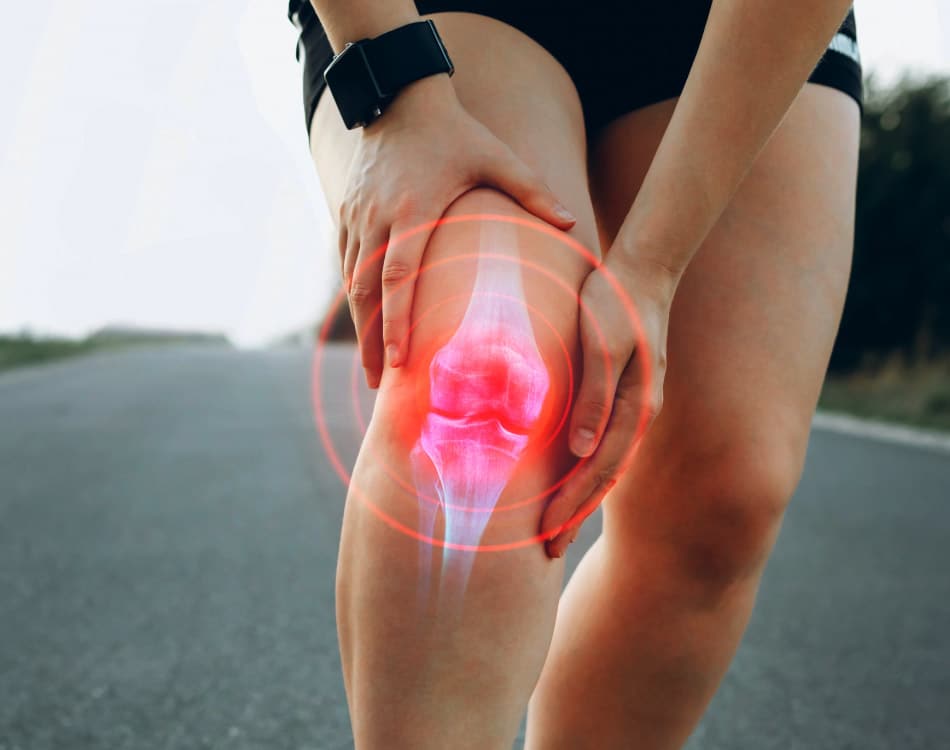Joint health is crucial for maintaining a pain-free active lifestyle, which is why many people turn to supplements like CBD for added support and resilience against tissue degeneration and joint deterioration.
Common joint support products like Biogen Joint Care OptiMSM contain research-backed ingredients such as methylsulfonylmethane (MSM), hydrolysed collagen, glucosamine sulphate, chondroitin sulphate and calcium. What you may not realise is that cannabidiol (CBD) also offers potential benefits for joint health.
READ MORE | Tame Tendon Trouble To Train On
Understanding Joint Health
Joint structures include connective tissues that enable our bones to move through complex interactions between muscles, tendons and ligaments.
Our joints also contain tissues like cartilage, which covers and cushions the bone ends, and synovial fluid, a lubricating substance within the joint capsule.
The coordinated function of these elements ensures joint stability, flexibility, and smooth motion, ensuring our bodies move efficiently and without discomfort.
However, over time, joint structures and function can deteriorate due to factors such as age, overuse, poor exercise technique, injury, or various chronic conditions, leading to discomfort, stiffness, and reduced mobility. And this is where joint support supplements can help.
READ MORE | 5 Reasons Why Men Should Consider A Collagen Supplement
The Role of CBD in Joint Health
CBD, a naturally-occurring, active non-psychoactive compound found in the cannabis or hemp plant’s resinous flower, has been used for its natural medicinal and therapeutic benefits for thousands of years, but it is only recently that interest in its potential joint health benefits has emerged.
CBD is one of over 100 cannabinoids found in the cannabis plant, and it interacts with the endocannabinoid system in our bodies.
This system plays a vital role in regulating various physiological processes, including pain perception and inflammation.
READ MORE | The Dynamics Of Stretching: Differences Between Static And Dynamic Stretching
Here are 3 ways CBD may benefit joint health:
1. Pain Management
CBD has demonstrated analgesic (pain-relieving) properties in numerous studies, including joint-related conditions like arthritis1.
By interacting with receptors in the endocannabinoid system, CBD may help reduce pain signals, offering relief to those suffering from joint discomfort.
A study2 published in the Journal of Experimental Medicine in 2012, demonstrated the mechanism by which CBD inhibits inflammatory and neuropathic pain, which are two of the most difficult types of chronic pain to treat.
2. Anti-Inflammatory Properties
Inflammation is a common culprit in joint problems, such as arthritis. CBD has shown anti-inflammatory potential, which can help mitigate inflammation in and around the joints, reducing pain and swelling.
Studies have shown that CBD may impact endocannabinoid receptor activity to reduce inflammation1.3.
The antioxidant activity of CBD is another potential bulwark in the battle against inflammation as it helps to reduce the impact of excessive oxidative stress on the body, including connective tissue3.
3. Cartilage Protection
Some research suggests that CBD might help protect cartilage from damage, which is a common issue in joint-related conditions like osteoarthritis.
One study4 determined that CBD regulates mesenchymal stem cell (MSC) biology, which may “enhance tissue engineering strategies aimed at cartilage repair”.
READ MORE | Strong For Life: Training Movements, Not Muscles Delivers Functional Strength
CBD Supplements for Joint Health
Given the potential benefits of CBD for joint health, adding a product like Biogen CBD Joint Recover and Repair to your existing joint health supplement stack may help to relieve joint pain associated with osteoarthritis and inflammation.
If you are considering CBD for joint health, consult with your healthcare provider, especially if you have an existing medical condition or are taking other medications.
References:
- Frane N, Stapleton E, Iturriaga C, Ganz M, Rasquinha V, Duarte R. Cannabidiol as a treatment for arthritis and joint pain: an exploratory cross-sectional study. J Cannabis Res. 2022 Aug 24;4(1):47. doi: 10.1186/s42238-022-00154-9. PMID: 35999581; PMCID: PMC9400326.
- Xiong W, Cui T, Cheng K, Yang F, Chen SR, Willenbring D, Guan Y, Pan HL, Ren K, Xu Y, Zhang L. Cannabinoids suppress inflammatory and neuropathic pain by targeting α3 glycine receptors. J Exp Med. 2012 Jun 4;209(6):1121-34. doi: 10.1084/jem.20120242. Epub 2012 May 14. PMID: 22585736; PMCID: PMC3371734.
- Atalay S, Jarocka-Karpowicz I, Skrzydlewska E. Antioxidative and Anti-Inflammatory Properties of Cannabidiol. Antioxidants (Basel). 2019 Dec 25;9(1):21. doi: 10.3390/antiox9010021. PMID: 31881765; PMCID: PMC7023045.
- Gowran A, McKayed K, Kanichai M, White C, Hammadi N, Campbell V. Tissue Engineering of Cartilage; Can Cannabinoids Help? Pharmaceuticals (Basel). 2010 Sep 6;3(9):2970-2985. doi: 10.3390/ph3092970. PMID: 27713386; PMCID: PMC4034107.















